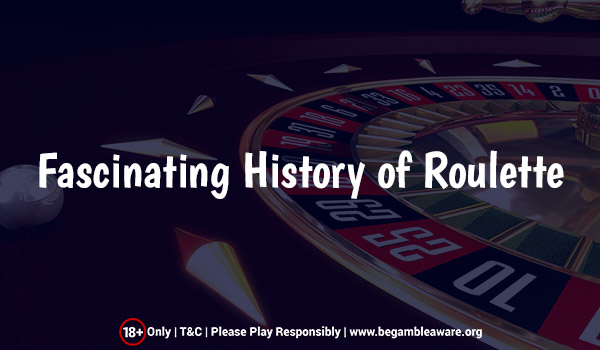Have you ever noticed how Roulette has a completely different aura compared to other casino table games? While all other games require complex interplay among cards and numerous probabilities attached to them, Roulette has a different character of its own; a simplistic one. It has simple rules and an even simpler Roulette strategy. And yet, it has survived, not thrived, through the decades and centuries, it has been in the casino. Today, let’s take a look at how it all started.

The Cloudy Beginnings of Roulette strategy
To this day, the true origins of Roulette are largely unknown, or at least uncertain. There are some reasons to believe that the game originated in China. Dominican monks discovered an ancient Chinese board game that was played with 37 animal figurines. These figurines were arranged into a magic square with numbers that totalled to 666; even today, the numbers on a Roulette wheel add up to 666.
However, there’s some evidence that indicates that the most primitive form of Roulette was played by Roman and Greek soldiers. They are thought to have drawn symbols on the inside of their shield, spun it on the ground, and bet on which symbol would land next to a stationary arrow. Even in such basic renditions, players might have devised a simple Roulette strategy to win more and lose less.
The French Connection
Whether it originated in China or among Roman and Greek soldiers, or anywhere for that matter, today, we know that Roulette took shape in France. The credit for inventing the game goes to Blaise Pascal, a French physicist, inventor, and mathematician, though he’s believed to have been heavily influenced by existing games like Roly-Poly and Even-Odd at the time. Though neither of these games required any Roulette strategy, both of them involved spinning a wheel and betting on its outcome.
The Spread and Bifurcation of Roulette
Blaise Pascal created Roulette, but it was two innovative Frenchmen that gave the game the much-needed boost in Europe. They helped the game spread when it was banned in France. Even without the ban, there wasn’t enthusiasm for Roulette as players couldn’t look over the hefty 5.26% house edge. The house edge, in turn, was so high because the original Roulette had two “zero” pockets.
The two Frenchmen Louis and Francois Blanc removed one of the zeroes and reintroduced the game in Germany. This brought the house edge to a mere 2.7% and attracted many new players. This version of Roulette eventually came to be known as European Roulette.
Meanwhile, the version that became popular in the US was the one with two zeroes. Ironically enough, the original version of Roulette that was developed in Europe wasn’t known as European Roulette anymore, rather it became American Roulette.
As the Roulette strategy has developed over the years, people have stuck to this fun game. Roulette has not lost its status as the gambler’s favourite pastime over several centuries and doesn’t look it will any time soon.